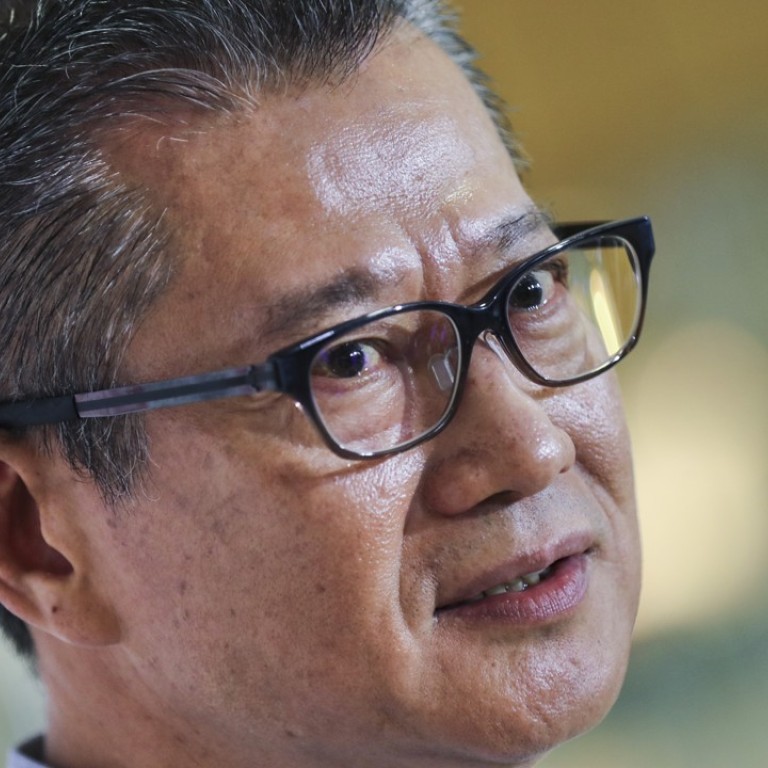
Hong Kong set to forgo HK$5 billion in tax revenues after reform to ease burden on SMEs: finance chief
Move chimes with city leader’s election pledge to lower tax rate for the first HK$2 million of corporate profits to 10 per cent, from 16.5 per cent
Hong Kong is preparing to roll out its first major profits tax reform in decades that will cost the government about HK$5 billion in annual revenue to ease the burden on smaller businesses.
Chan said the new regime would not complicate the current system, but estimated the government would have to forgo about HK$5 billion in annual tax revenue, or about 3.8 per cent of the total amount.
However, the launch date would depend on the approval process in a deeply divided Legco, where opposition pan-democrats have regularly filibustered bills as part of a widening political rift with their pro-establishment colleagues and the government.
Tax incentives for Hong Kong SMEs will only create more jobs for government paper shufflers
The business community, on the other hand, welcomed the reform plan and the benefits for small and medium-sized enterprises and start-ups.
Federation of Hong Kong Industries chairman Jimmy Kwok Chun-wah said: “The proposal is definitely helpful for alleviating the financial burden of SMEs and start-ups. This will also strengthen the overall competitiveness of Hong Kong’s business environment and may attract more local or overseas entities to start their businesses in Hong Kong.”
We can spend a little bit more based on our current financial strength, but we should also consider what society really needs
At the same time, Chan reiterated his public finance philosophy that money should be spent only when necessary.
Under the previous administration, Chan followed the traditional policy of “fiscal prudence”, contrasting with his new boss’ endorsement last week of former central banker Joseph Yam Chi-kwong’s call for dumping the “miserly” old mentality and ramping up spending, even at the risk of incurring a deficit.
“Yes, we can spend a little bit more based on our current financial strength, but we should also consider what society really needs,” Chan said, stressing the need to invest in future pillars such as technology.
Baptist University academic Billy Mak Sui-choi said the finance minister’s philosophy meant Lam’s new administration could be more flexible on investments that would see good returns in future, without necessarily increasing spending on welfare.
Hong Kong recorded a HK$92 billion surplus for the fiscal year 2016-17, and total reserves are on track to hit HK$952 billion by March.

